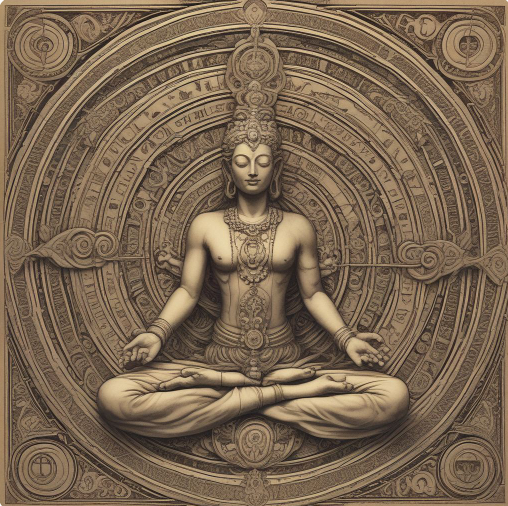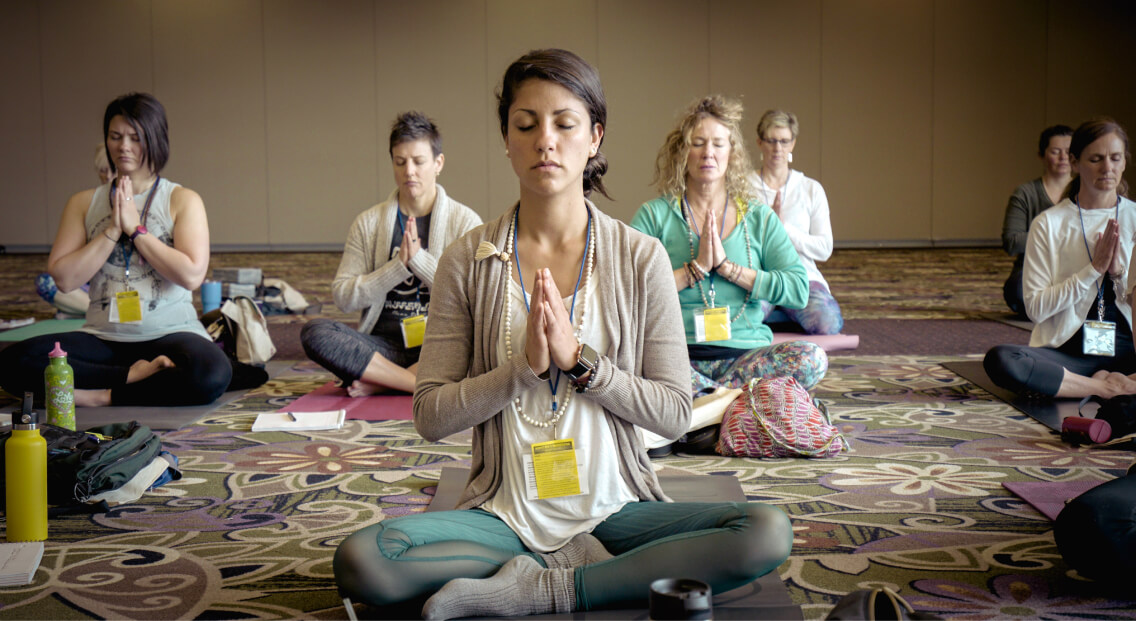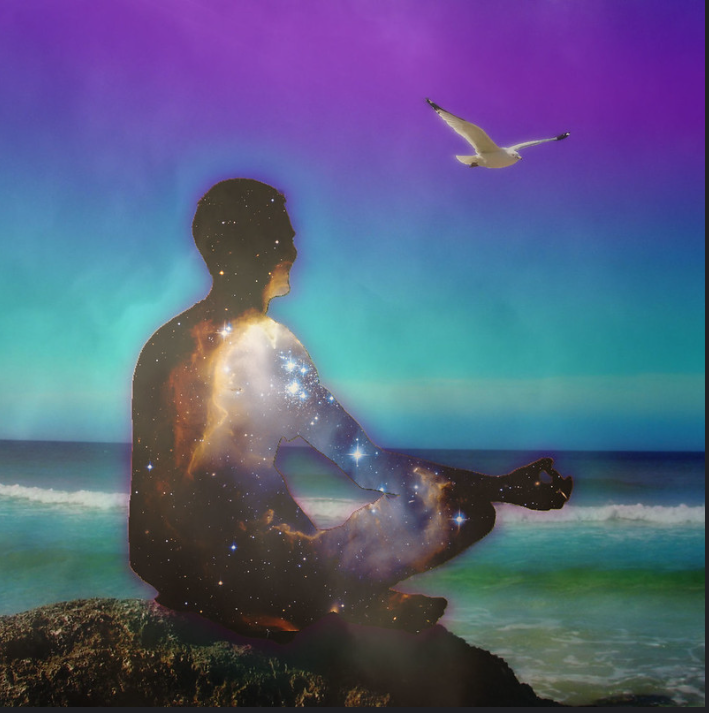When we think about religion, we often think of the different rules, rituals, and groups that make each one unique. These differences can sometimes create divisions between people. However, if we look deeper, most religions share a common, eternal goal: to connect us with a higher truth, to make us better people, and to bring us inner peace. This universal essence is what true religion is all about.
This is exactly where yoga comes in. Yoga is not itself a religion, but a practical and scientific tool for achieving that universal goal. It doesn’t ask you to change your beliefs. Instead, it offers methods—like meditation, breathing exercises, and ethical principles—that can help anyone, from any faith, strengthen their personal connection to the divine, improve their health, and find a sense of calm. In its purest form, yoga is a universal bridge, not a wall, between all religions.

Yoga: The Practical Path to Eternal Truth
The most direct way to practice and experience this eternal truth is through Yoga.
Yoga is unique. It is both the method and the goal. It is a scientific practice of inner growth that requires no external validation. Where religions and sects may differ in their external customs—their rituals, fasting, and festivals—Yoga focuses solely on internal principles and consistent practice.
Most importantly, Yoga does not divide. It unites. It connects the individual to universal truths that are common to all.
Sects and Yoga: Understanding the Difference
Within every major religion, numerous sects exist. In Hinduism alone, we find Shaivism, Vaishnavism, and Shaktism, each with its own sub-sects. These divisions are often based on interpretation and practice.
Yoga stands apart from these sectarian lines. While different traditions may describe it in their own language, its origin and purpose are always the same:
- Universal welfare (Lokah Samastah Sukhino Bhavantu)
- Inner purification (Shaucha)
- Ultimate connection with the Divine
Yoga emphasizes direct experience, personal discipline (Sadhana), and self-realization over external observance.
The Universal Thread: Yoga in All Religions
The beautiful proof of Yoga’s universality is that its essence shines through in all major world religions:
- Hinduism: Yoga is an integral part of Sanatan Dharma, with detailed paths outlined in its scriptures.
- Buddhism: This path is built on mental discipline and mindfulness—core tenets of Buddhist Yoga or Dhyana.
- Jainism: Heavily emphasizes purity, non-violence (Ahimsa), and meditation, forming its own path of Jain Yoga.
- Christianity: The Bible’s calls for inner purity, selflessness, prayer, and seeking salvation mirror the goals of Yogic practice.
- Islam: The Quran’s emphasis on surrender to Allah (Islam itself means “surrender”), purity of heart (Tazkiyah), and righteousness aligns perfectly with yogic values like Shaucha (purity) and Satya (truth).
- Sikhism: The Guru Granth Sahib describes God as Omkar—formless, eternal, and timeless. The core practices of selfless service (Seva) and devotion (Bhakti) are direct reflections of Karma Yoga and Bhakti Yoga.
This cross-cultural presence isn’t a coincidence; it is evidence that Yoga is a universal science of the soul, not the property of any single faith.
The Yogic Traditions of India
India’s history is rich with saints and masters who rose above sectarian limits to spread this universal wisdom. This great tradition is known as the Sant Parampara.
Over millennia, various streams of Yoga developed to suit different temperaments:
- Hatha Yoga: Emphasizes physical mastery and vitality as a foundation for spiritual growth.
- Bhakti Yoga: The path of devotion and love for the Divine.
- Karma Yoga: The path of selfless action.
- Jnana Yoga: The path of intellectual inquiry and wisdom.
- Raja Yoga: The royal path of meditation and mind control.
Today, these traditions have spread across the globe, offering a practical toolkit for millions seeking peace and purpose.
Conclusion: Yoga as the Science of Self-Realization
While sects may focus on external identity, Yoga focuses on the inner journey. It is a universal, eternal, and scientific methodology that helps a person rise above division, realize their true nature, and move toward liberation (Moksha).
Yoga does not ask you to change your religion. Instead, it complements and deepens any sincere spiritual path by providing the practical tools to experience the divine truth at the heart of them all. It is, and has always been, humanity’s universal path to connection.

